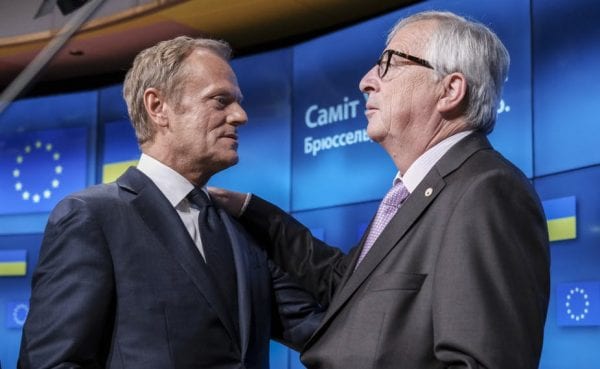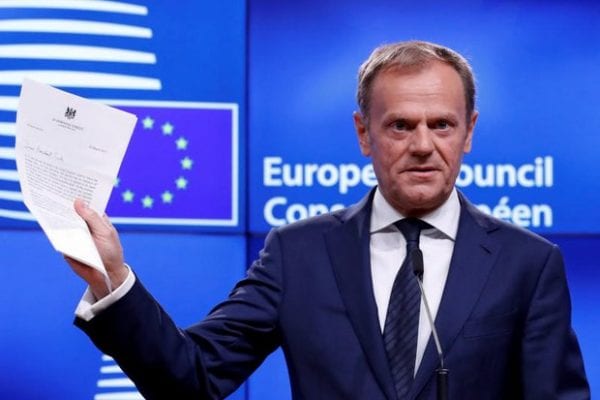
Tusk and Juncker: nearly there. Image: Oliver Hoslet / EPA
Nieves Perez-Solorzano, University of Bristol
Before the Brexit negotiations had officially started, back in June 2017, the EU’s chief Brexit negotiator Michel Barnier told journalists what he needed on the other side of the table:
A head of the British delegation that is stable, accountable and that has a mandate.
Less than a year before Brexit day, scheduled for March 29, 2019, Barnier may feel he is still waiting for those conditions to be met, especially as the EU now finds itself with a new head of the British delegation, Dominic Raab. Raab’s negotiating position for the next round of talks, starting on July 16, results from Theresa May’s attempt to hold her cabinet and the Conservative Party together at a meeting at Chequers. In doing so, the prime minister provoked yet another domestic Brexit crisis with a spate of resignations, including those of the Brexit secretary, David Davis – who Raab has replaced – and foreign secretary, Boris Johnson. Continue reading →



